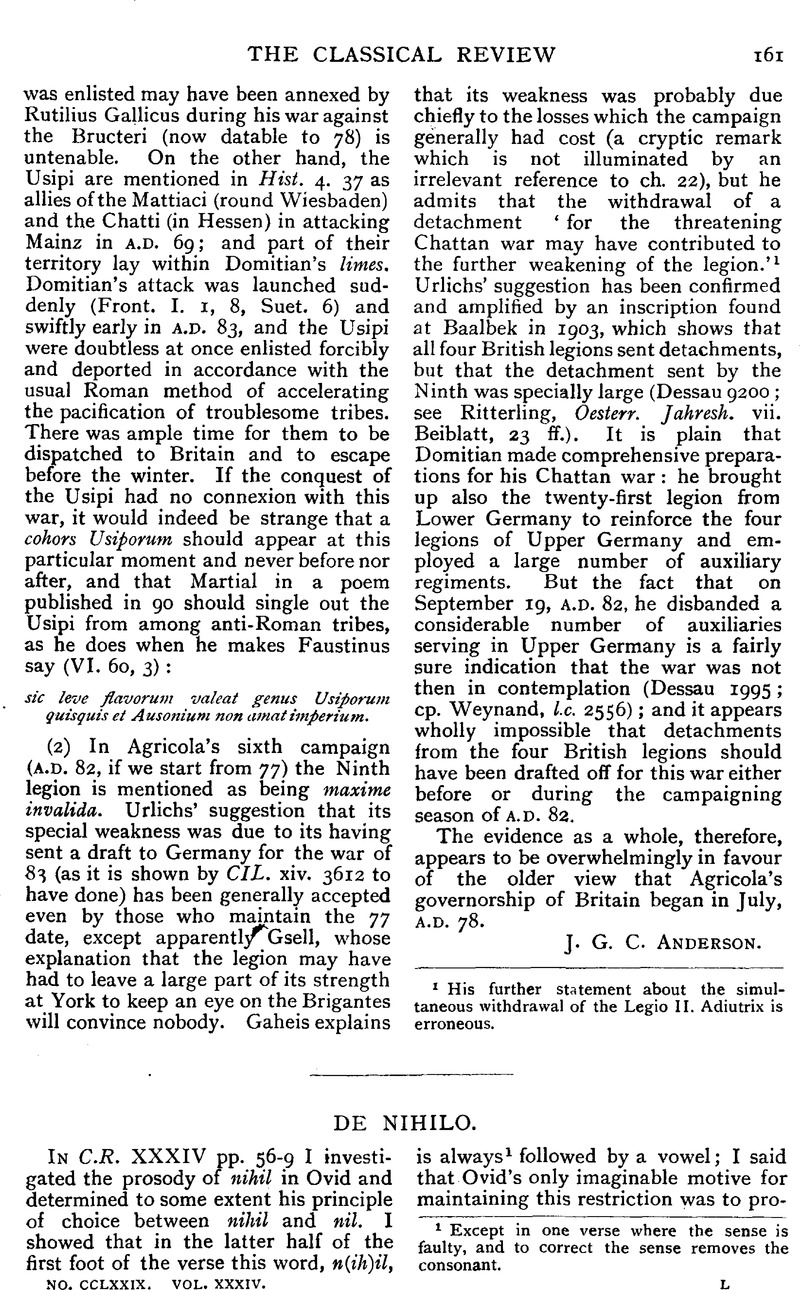No CrossRef data available.
Article contents
De Nihilo
Published online by Cambridge University Press: 27 October 2009
Abstract

- Type
- Original Contributions
- Information
- Copyright
- Copyright © The Classical Association 1920
References
page 161 note 1 Except in one verse where the sense is faulty, and to correct the sense removes the consonant.
page 162 note 1 ‘The preponderance of nihil in our MSS (of Phaedrus) does not really need explanation when we consider that it has ousted nil almost entirely from the MSS of Lucretius' says Dr Postgate on p. 58, when he has left Ovid a safe distance behind him. In Phaedrus he twelve times alters nihil to nil, in Lucretius everyone alters it scores of times.
page 163 note 1 In a footnote on p. 54 DrPostgate, takes occasion to say that in the Classical Quarterly for 1916, pp. 143 sq.Google Scholar, I handled ex Pont. II 5 II sq. with odd negligence or perversity. This means that I had the misfortune to tread on one of Dr Postgate's chickens. In the couplet
optastique breuem salui mihi Caesaris iram, quod tamen optari si sciat ipse sinat,
I upheld the MS text against a troop of conjectures, one of which, alack, was breui solui. Parental affection is strong in Dr Postgate, and danger to his offspring has a tendency to discompose his thoughts. Here, by way of defending his conjecture from the charge of treasonable ambiguity which I brought against all the conjectures, he goes about to show, citing met. IX 273 sq., that it admits an innocent interpretation, as if that were in dispute. The task of a defender is to show that it does not admit a sinister interpretation; but this he is not calm enough to see. He even argues against himself: ‘one might suppose from this’—my charge of dangerous ambiguity —‘that no pentameter followed the hexameter, or that this too contained a dangerous ambiguity, as Caesar might approve of a prayer for his own demise.’ In other and plainer words, Ovid's pentameter implies that Ovid's hexameter was innocent. Which hexameter then is the more likely to be Ovid's: that of the MSS, which is innocent, or that of Dr Postgate, which, as he does not and cannot deny, is ambiguous? When, in this troubled atmosphere, he calls my handling of the passage perverse or negligent, I am not very much upset: I suppose it was less confused than could have been wished.
page 163 note 2 Since Paris. 8072 (Π or B) is now found to give nihil in VI 58, the support for nil in that verse is no longer better, but only equally good.


